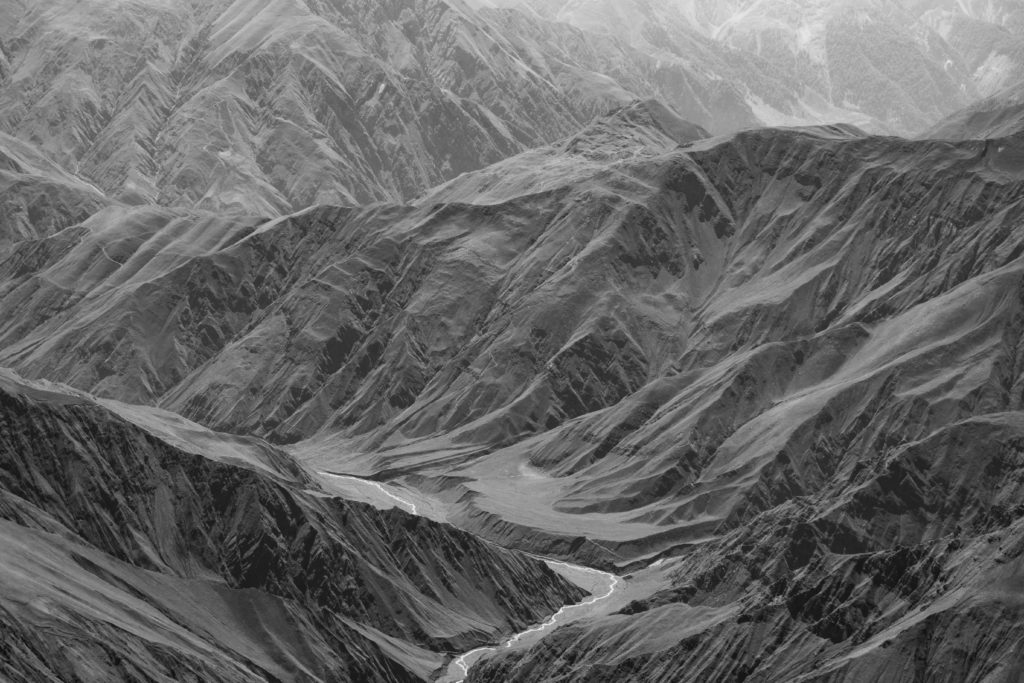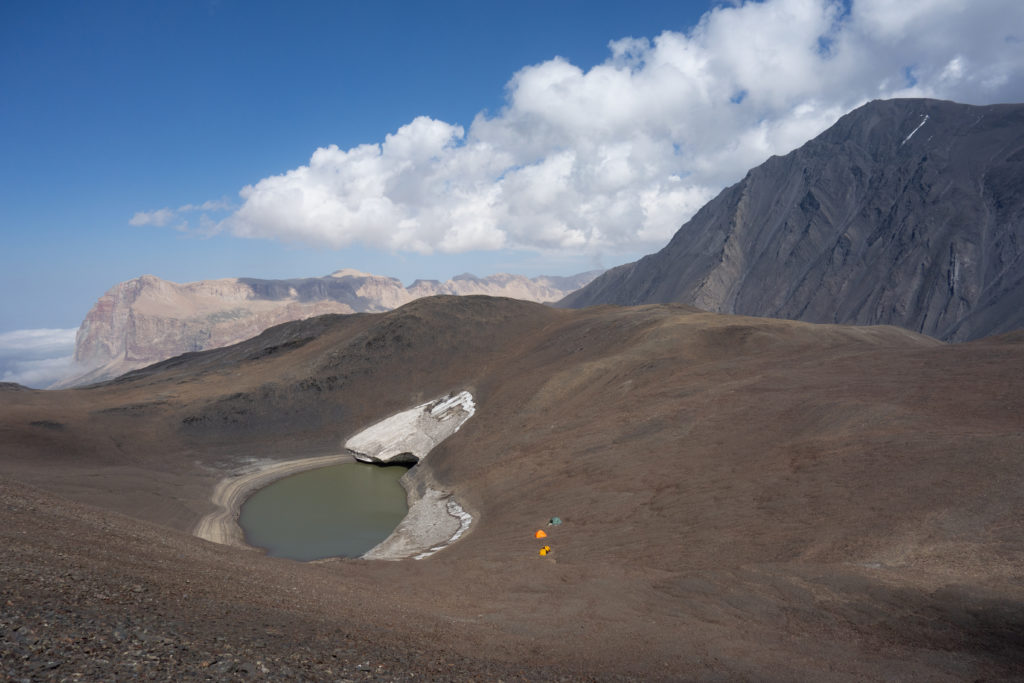Azerbaijan encompasses every type of landscape from Caspian Sea beaches to the high Caucasus mountains, which in summer are an escape for cool crisp air and some of the most extraordinary landscapes in Europe. Dutch expeditioner and photographer Jan Bakker has spent many weeks photographing the region, and to accompany our exhibition of his works here, explains his fondness for trekking the mountains of Azerbaijan in summer.
Baku: Do you have a goal when photographing landscapes?
Jan Bakker: Not really. I shoot very intuitively and more often than not I don’t know what the landscape will actually be like. I do like an adventurous human factor in a landscape as well, like a tent or a trekker/climber, for scale and contrast. While moving in the mountains there may be hours or even days without taking out my camera and then something catches my eye and boom, I shoot a whole series. I love that process.
Baku: Tell us about your experience documenting your mountain climbs in Azerbaijan.
JB: Myself and a climbing friend planned to climb a number of peaks higher than 4000 metres in the Azerbaijani Caucasus. As the mountains are shared with Russian Dagestan, a permit was needed (and hard to be obtained!). I had only seen the satellite images on Google Earth and had no idea what the terrain would be like. Our route went straight across Shahdag National Park, and it was truly magical. Hardly any human intervention was visible, pristine forests and stark mountain summits made this place almost fairytale like. We carried more than 30kg of expedition equipment and food so at times it was tough but you forget about that when you are home again and see the images that were taken. They call that type 2 fun.
Baku: Many of your landscape shots seem to focus on the texture and terrain of the mountains – is there a reason for that?
JB: I’m drawn to mountains that are graphic and show lots of different lines and contrast. Of course, the light has to be good, but when the colours in a mountainscape are very subtle you start to look at it from another perspective. I visit places similar to the Azerbaijani Caucasus, like the Pamirs in Afghanistan and Kurdistan, so I guess that shapes the way I look at mountain landscapes.
Baku: What is special for you about Azerbaijan in the summertime? What distinguishes the Azerbaijani Caucasus from other mountain ranges you have explored?
JB: We visited at the end of the summer which is probably my favourite time of the year. In Azerbaijan, it was particularly good as you leave the hot city and head up to the cool, fresh mountain air. We were there in berry season so we had free snacks on the lower slopes of the Caucasus. The Azerbaijani Caucasus is wild and you feel like a true explorer in these mountains. Most of the time there are no walking trails. You climb the mountains in a very instinctive way, using all the experience gathered on previous expeditions. These are among the wildest mountains in the entire Caucasus region and that’s exactly what I’m looking for in a mountain adventure.
Baku: Inspiration or Effort? What makes a good photographer in your opinion?
JB: Inspiration. In my opinion it’s all about the eye of a photographer, which is unique. Of course, there is technical effort involved but that is something that can be mastered by training and experience. Someone’s look at the world is original and catches a glimpse of the photographer’s psyche and his/her sense of beauty. I do think, even with a good eye, practise makes a good photographer. Shoot a lot and be critical about what you shoot. Sometimes choosing the best images from a large selection is the hardest part, but it might be the key to being a good photographer.
Baku: How would you describe the relationship you have with mountains?
JB: I was born and raised in the Netherlands, possibly the flattest country on Earth. I remember the first time I saw mountains at the age of 16 from a plane. I was instantly sold. The shapes, the jagged and wild nature of these peaks sparked my imagination profoundly. I feel at home in the mountains, and every time I’m headed to them I get this tingling feeling in my belly. To me, mountains are excitement, adventure and they represent a kind of pureness that I don’t find anywhere else.
Baku: Which mountains of the Azerbaijani Caucasus would you recommend to other climbers?
JB: That would be the highest mountain in Azerbaijan, Bazarduzu (4465 metres high). It is technically not so hard, but it’s a great adventure with a chance to see the last glaciers in this part of the Caucasus. It also has amazing views of both Azerbaijan and Russian Dagestan.
Baku: Tell us about your favourite landscape shot and how you took it.
JB: It’s a shot I took in the Pamir Mountains in Tajikistan back in 2016. We were camping at a high-altitude spot on the foot of a big mountain. I had to climb up a little pass to 4800 metres to get a good frame but we had to hurry before the sun would disappear behind the ridge. Our camp was so tiny compared to the enormous snow-covered mountain in the background, the photograph really gives a sense of scale. Everything was perfect, light conditions and composition. I knew this shot was a winner.
Interview by Isabella Sanai
All photography by Jan Bakker
Instagram: @jb37north
Online editor: Candice Tucker








